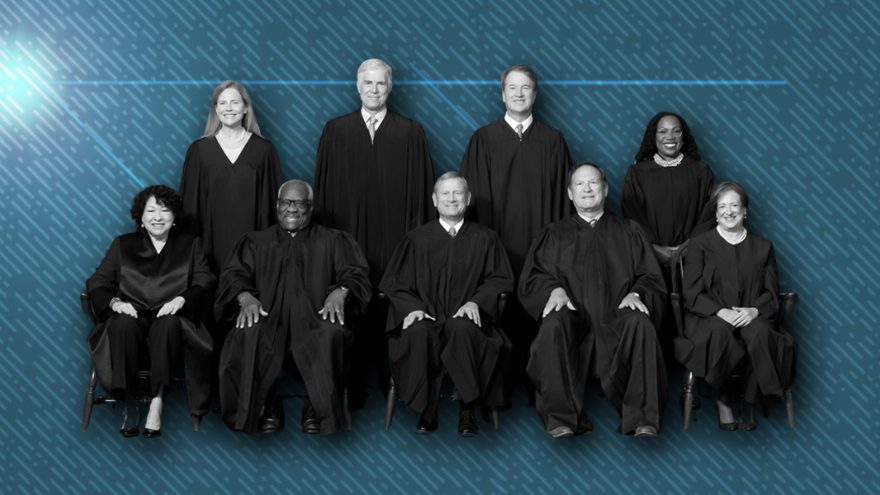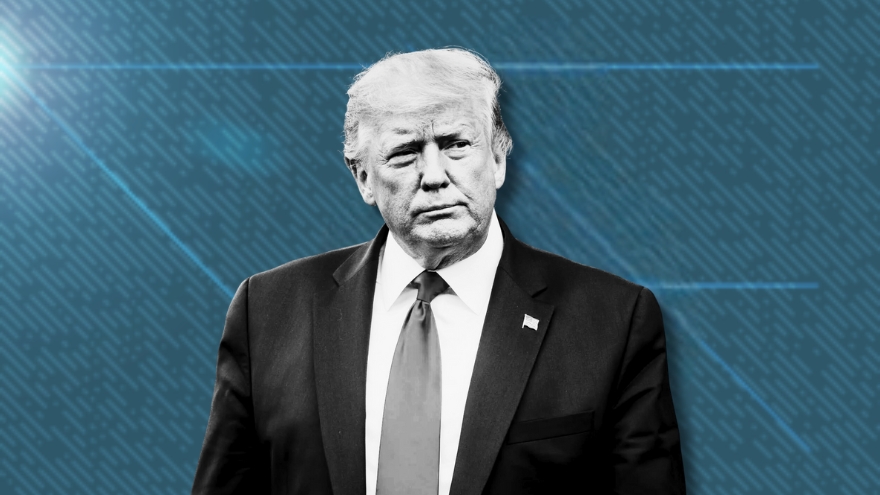The Supreme Court of the United States heard oral arguments from Colorado's 14th Amendment challenge to prevent former President Donald Trump from appearing on the state's ballot this November.
Justices questioned the constitutionality of Colorado's case, argued by attorney Jason Murray, and appeared to indicate they would rule in favor of Trump appearing on the state's ballot.
The state argues that the former president is ineligible to run for president citing the 14th Amendment of the United States Constitution, which was enacted after the Civil War and bars persons who have engaged in "insurrection or rebellion" against the United States and its Constitution from holding public office.
Recently appointed Justice Ketanji Brown Jackson, one of the court's liberal justices, notably called Murray's argument into question during Thursday's oral hearings on the case.
Jackson noted the 14th Amendment highlighted "local elections" in its language rather than the presidency. Colorado's attorney acknowledged Jackson's questioning, though argued there was a lack of historical ballot access which, in turn, marked Trump's legality to appear on the ballot uncharted territory.
"What is very clear from the history is that the Framers were concerned about charismatic rebels who might rise through the ranks up to and including the presidency of the United States," Murray said.
Jackson questioned why the term "president" was not explicitly listed in Section 3 of the 14th Amendment.
"The thing that really is troubling to me is I totally understand your argument, but they were listing people that were barred, and 'president' is not there," Jackson said. "That just makes me worry that maybe they weren't focusing on the president."
Jackson also noted "electors" for president and vice president appeared in Section 3 and therefore barred "insurrectionist electors."
"Doesn't that at least suggest ambiguity?" Jackson asked in agreement with Justice Brett Kavanaugh's similar remarks on the case. "If there is an ambiguity, why would we construe it ... against democracy?"
Fellow liberal Justice Elena Kagan similarly questioned the legitimacy of Colorado's challenge, asking "why a single state should decide who gets to be President of the United States."
"It sounds awfully national to me," Kagan said of Colorado's argument, adding the means to enforce Colorado's argument would be federal. "Why should a single state have the ability to make this determination, not only for their own citizens, but for the rest of the nation?"
Murray insisted SCOTUS was tasked with settling the issue for the nation and noted if SCOTUS ruled in Colorado's favor, other states would need to go through their own processes to remove Trump from their ballots.
Although Jackson appeared to agree Trump engaged in insurrection for his actions on Jan. 6, 2021, Justice Sonia Sotomayor appeared to be the lone Justice to agree Trump may be eligible for removal from Colorado's state ballot.
“History proves a lot to me and to my colleagues,” Sotomayor said. "There's a whole lot of examples of states relying on Section 3 to disqualify insurrectionists for state offices.”
Sotomayor referenced a case heard by SCOTUS in 1869 in which then-Chief Justice Salmon Chase suggested Section 2 of the 14th Amendment did include persons seeking the presidency in regard to Confederate President Jefferson Davis.
"I hope that democracy in this country will continue, because right now we have a very, very tough situation with all the radical Left ideas, with the weaponization of politics, they weaponize it like it’s never been weaponized before," Trump said during a Thursday speech at Mar-a-Lago following today's oral arguments. "It’s totally illegal, but they do it anyway. It has to stop.”

